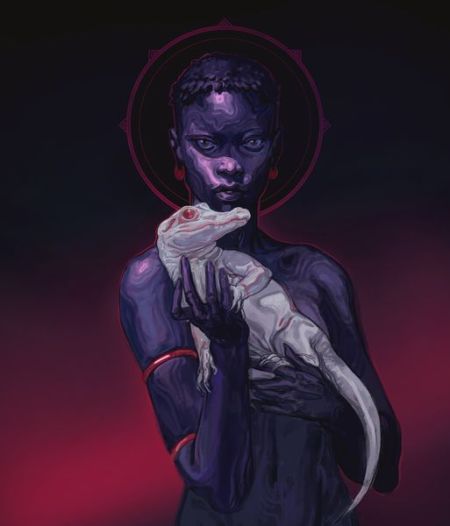The tree stood in the living room, centered in the arch of the window, its branches unadorned – naked. Despite being both artificial and pre-lit it had been there for several days because Ellie insisted that even plastic trees had to acclimate before they could be decorated.
Several RubberMaid totes, their purple hue faded to lavender by time and dust, sat open on the floor, each filled with crumpled tissue in a variety of colors. The same tissue was re-used every year, until it was so tattered and thin that it had to be replaced. The ornaments – mostly glass, but some wood, some tin, and a few made of seashells – once cradled within were scattered haphazardly on the coffee table, two snack trays, and an end table that had seen better days.
For Ellie, decorating the tree had always been her favorite part of the season, as if a piece of holiday magic entered the room with every bauble placed on a waiting bough until – finally – the angel was placed on top, and Christmas arrived in full force.
This year, however, something was different. The air felt heavier, almost as if the house itself were holding its breath. The dogs seemed to sense it too. Mumble had been pacing anxiously all day, and Pork Chop hadn’t even barked at the mailman once.
“Are you ready to start?” Max asked, coming into the room, and causing his wife to jump.
“You scared me!” Ellie said. “And yes… I am.”
“Great!” Max picked up a small yellow ornament – a glass version of a rubber duck. “This guy looks like he wants to be first.”
“Wait!” Ellie’s cry made her husband freeze in place. “Don’t forget the sacrifice.”
It was the phrase she’d heard every year from her mother, growing up, and from her grandmother as well. “It’s part of the tradition,” the older woman had reminded them every year, her voice quivering. But in all the years those words had been spoken, often during late-night conversations she hadn’t been meant to overhear, Ellie had never known what they meant.
Tonight, Ellie felt the weight of family history. Every year, one ornament had to break. Not intentionally but also not by accident. Well, not exactly.
“What do you mean ‘sacrifice?’” Max asked. He wasn’t usually part of the decorating process from the beginning. Instead, it was up to Ellie and her mother, and he’d come later and do the top section where they couldn’t reach. But Ellie’s mother wasn’t with them anymore, and she’d insisted that she couldn’t – didn’t want to – decorate the tree alone.
“Mom told me once that it’s for the tree. To make the magic work.” Ellie frowned as she said it. The notion was absurd. Still, she couldn’t shake the feeling that her mother might have been right. She looked at the tree: it seemed to loom larger than its actual size, the dark green needles casting shadows that looked like clutching fingers on all the walls of the room.
Fighting a shiver, Ellie told their smart speaker to play Christmas music, and she and Max sang along to Bing, Johnny, Burl, and Nat as they began to decorate.
Carefully, they began placing the ornaments on the branches. Ellie’s hands trembled as she hung a shimmering snowflake as high as she could manage. Every brush of her sleeve against the needles or clink of glass as the ornaments touched made her flinch.
As the hours passed, the tree grew more beautiful, but the weight in the air grew heavier, pressing down on Ellie’s chest.
“Is it time?” Max asked as they neared the end of their task.
The remaining ornaments were among the oldest in their collection, things that Ellie’s mother had bought for her when she was still a baby. This one was from her very first Christmas, and that one was from the year Max proposed. How could she choose one to be destroyed?
The answer came not from her, but from the tree itself. A low creak echoed through the room, the sound of the center pole groaning under an unseen weight. The branches trembled, shaking the ornaments as if impatient.
“I guess it’s now,” Ellie said.
She picked up an old glass cardinal with a chipped tail feather. She held it tightly, her hands cold even though the room was warm. Cardinals had been her grandmother’s favorite bird. Standing in front of the tree she reached to slip the gold thread around the branch, but the second she let go, it came loose.
It fell in slow motion, spinning as it descended toward the tile floor. When it landed, the sound was sharper than Ellie expected, the shattering glass echoing like a gunshot.
The music stopped. The room fell silent. The shadows around the tree seemed to shift, retreating as though satisfied. The air grew lighter, the oppressive weight dissipating until Ellie was breathing freely once more. Staring down at the tiny pieces of red glass, she whispered, “It’s done.”
Max restarted the music and went to get the broom. The dogs sniffed the air, then jumped onto the couch, settling into opposing corners.
And the tree? It seemed to hum with approval, its lights glowing brighter. Ellie even thought she detected faint movement from the branches… a bow of gratitude, almost.
Later that night, as she and Max sipped spiked eggnog in the darkened living room with only the tree lights for illumination, it occurred to Ellie that the broken ornament had meant more than just a ritual sacrifice. It was a sort of a pact. The tree would retain Christmas magic until the dawn of New Year’s Day, when the ornaments would be removed.
Still, she had to wonder: what would happen if the tree ever went without?




















